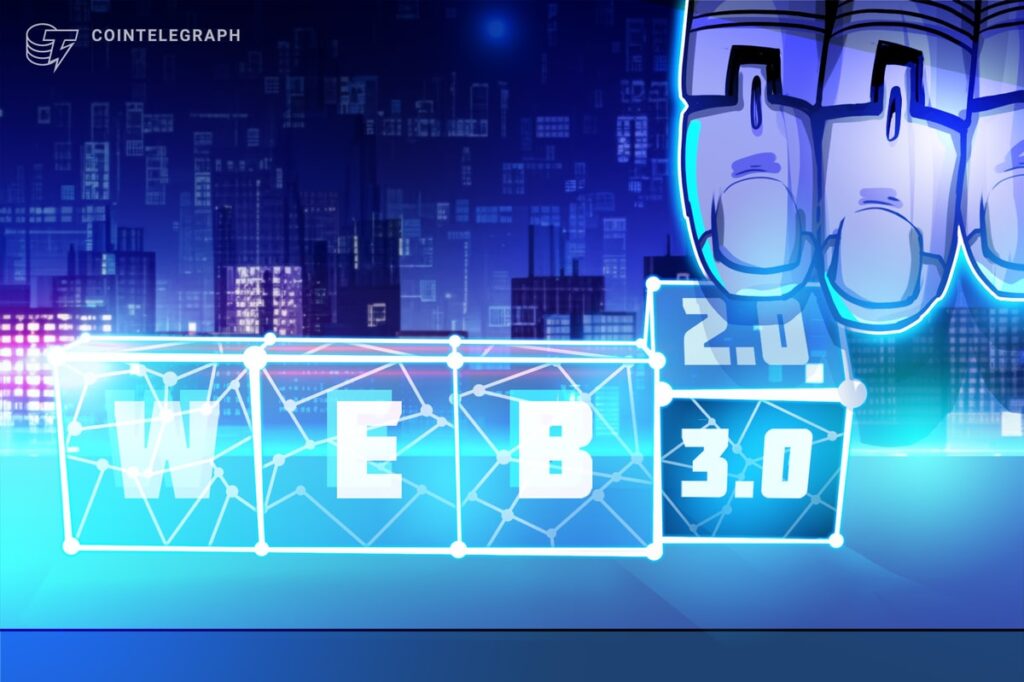Opinion by: Grigore Roșu, founder and chief executive officer of Pi Squared
For some, the audacity of questioning the primacy of blockchain in Web3 is borderline heretical. The idea that decentralization and progress could exist without blockchains seems absurd to those who built careers around Bitcoin, Ethereum, and their descendants. Given blockchain’s well-documented scaling limits, however, there is an argument to be made that Web3 doesn’t actually need blockchains to thrive. Instead, it requires payment systems and verifiable settlement systems that are super fast. Blockchains are just one way to achieve that, not the only way.
While blockchain solved the double-spending problem, it introduced its own architectural burden: the rigid fixation on total ordering, dictating that every transaction must wait its turn in a global queue, processed through a monolithic consensus mechanism. Initially, this made sense in the context of payments, where security and simplicity were paramount. Still, in the context of Web3, where complex applications require speed, flexibility, and scale, this same mechanism has become a constraint. It imposes a kind of serialized tyranny, throttling throughput and locking developers into a narrow lane of design options.
The undeniable influence of FastPay
Mobile remittance app FastPay proved that double-spending can be avoided differently without a total order. This inspired systems like Linera, which use independent local orderings while maintaining global verifiability, proving that a different, more scalable future is possible and already underway. FastPay also inspired the likes of POD and Sui’s single-owner objects protocol. If FastPay had been invented before Bitcoin, blockchain might never have captured the cultural or technical imagination in the way that it did.
Recent: Beijing to invest in blockchain, integrate into infrastructure
Some will no doubt argue that total ordering is essential for financial integrity or that without blockchains, decentralization itself unravels. These concerns, however, mistake a particular implementation of trustlessness for trustlessness itself. What truly underpins decentralized systems is the verifiability of a transaction, not the precise order in which it happened relative to every other global transaction.
Blockchain’s growing pains are still on display
While Ethereum’s Dencun upgrade sought to improve transaction throughput through “blobs,” the core architecture remains tied to total ordering. Even with Solana’s introduction of the Lattice system, the network continues to suffer outages caused by bugs and excessive load. Additionally, the explosion of L2s is more a workaround than a solution, offloading transactions from mainnets only to reintroduce them later in delayed batches, resulting in an endless cycle of what is essentially congestion management.
The rise of flexible payment and settlement protocols
Like in legacy tech circles, the “evolve or die” mantra certainly applies to investors and builders anchored to traditional blockchain architectures. Moving forward, protocols prioritizing flexible, verifiable payment systems and settlement over rigid total ordering will unlock far greater throughput and better user experiences. As decentralized applications evolve and autonomous agents driven by AI begin interacting with blockchains, the cost of sequencing everything in order will become a competitive liability.
There have already been signs of this tectonic shift taking place, with the growing adoption of modular blockchain frameworks like Celestia underscoring a broader recognition that classical blockchains are too inflexible. Data availability layers, execution shards and offchain verification mechanisms are all attempts to decouple blockchain’s trusted validation from its limiting sequencing model. While these efforts may not break entirely from the past, they point unmistakably toward a future of more adaptable infrastructure.
A new role for blockchain
This doesn’t mean blockchain will disappear, but it must evolve. Looking ahead, its most enduring role may be as a universal verifier, less a master ledger and more of a decentralized notary within a broader, more agile stack. While this is a necessary evolution, unfortunately, it’s hard to see how that shift will be smooth, as too much capital, ideology and career risk is tied up in the legacy narrative.
Many venture funds, DeFi protocols, and “Ethereum killers” are financially and reputationally invested in keeping the blockchain central. But history has little mercy for technological incumbents that cling to yesterday’s model. Just as the internet outgrew its early walled gardens, Web3 is poised to move beyond the rigidity of block-based sequencing. The fruits from the next wave of infrastructure will belong to those who understand and capitalize on this inflection point.
Opinion by: Grigore Roșu, founder and chief executive officer of Pi Squared.
This article is for general information purposes and is not intended to be and should not be taken as legal or investment advice. The views, thoughts, and opinions expressed here are the author’s alone and do not necessarily reflect or represent the views and opinions of Cointelegraph.

